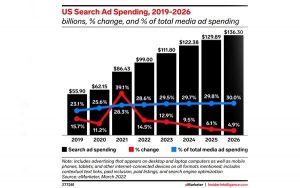An explainer video, at its core, is a vessel designed to deliver a clear message. Given all the attention that’s paid to crafting the message itself—is it accessible? Compelling? Fun, funny, or educational?—it can be easy to forget the importance of the messenger. But the voice that frames a narrative is a critical element of the story so, when beginning the scriptwriting process, is an important to element to consider.
By “messenger,” I don’t mean the voiceover artist. Although they certainly play a vital role in bringing the story to life, this post is about the voice inherent to a script and looking at how that tone can shape the meaning behind a message.
One of the first decisions that need to be made when writing a script is figuring out the voice behind a narration. Should the narrator be speaking as an excited member of the team (“Last year at Business, Inc. we sold over 1 million widgets!”)? Or should the narrator instead be an impartial observer, a wise unbiased entity simply delivering information (“Last year at Business, Inc., they sold over 1 million widgets!”)? Or, perhaps, should the narrator an omnipotent force speaking directly to you, the audience (“Last year you bought over 1 million widgets from Business, Inc.!”)
That tiny difference—between We, They, and You—may seem insignificant, but it plays a large role in shaping how a message is delivered. For example, invoking that “we” instantly creates a familial and friendly tone; a sense that the business isn’t just some cold, faceless entity, but rather a collection of likeable and relatable personalities. These are great qualities, there’s no doubt about that, but it’s important to recognize that the connection comes with a cost: a sense of authority.
How many of us have received compliments from a family member? All of us, I hope. But the important follow-up here is how many of us have doubted those kind words because of the source. Of course Mom thinks I look handsome; she’s my mom (and I kind of look like her)! But that same compliment, from someone with a different last name, carries a different weight. It’s impartial and therefore feels more objective and authoritative. That being said, neither perspective is better than the other. While a sense of authority may seem closer to fact, it can also come across as distant. And when the goal of an explainer is often be to inspire action, that distance can create a gulf.
Given that goal —to inspire action—perhaps in some cases it might be best to address the audience directly. Shine a spotlight on the viewer, whisper into his or her ear, and speak to him or her with a more straightforward “you.” The benefit of this approach is that it makes the viewer feel singled out and special. He or she will immediately consider the message within the unique construct of their own life. But, once again, with these pro’s do come con’s. And in the case of “you,” issues can stem from the dynamic between audio and visual. For example, if the character on-screen doesn’t resemble the viewer, he or she might immediately check out and disregard the rest of the message. In addition to that potential conflict, there’s also a chance that using “you” may feel too aggressive. After all, it’s the semantic equivalent of a nudge and some people prefer to keep their distance.
But the purpose of this piece is not to relay a sense of doom. Rather, it’s the opposite. To highlight the strengths and weaknesses of perspective and their importance to the equation. This way, the concept can be considered and discussed early in the process. And the best part is that regardless of whatever voice is chosen, a talented writer and artist can craft that voice into something distinct that fits a client’s needs. So regardless of which narration style you choose, it’s a good idea to think about that unheralded voice: the messenger, and what he, she, we, they, or you can do to make a lasting difference.
(151)






